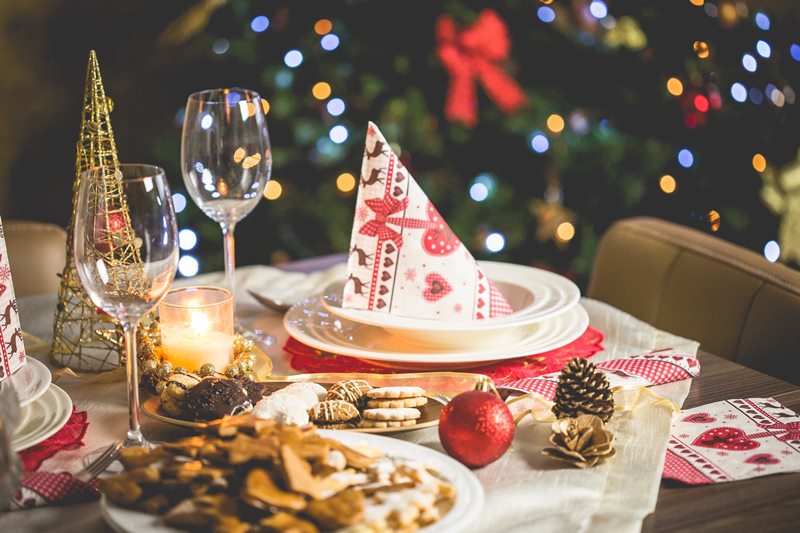Worried about holiday weight gain?
The holidays are just around the corner and for many people, it is the most wonderful time of the year during which they can unwind and gather with family and friends. But, for some people, this particular time of the year can be quite stressful and overwhelming with regards to the abundance of foods being available. For the latter, there is a fear of losing control, over-eating and hence gaining weight.
How guilt and fear can contribute to over-eating?
That same fear and guilt of eating certain foods can actually contribute to mindless eating. So, instead of savoring the food and being in tune with your fullness signal, that little voice in your head might be guilt-tripping you about the calories, the fat and the sugar in the food that you are eating. As a result, torn between fully appreciating the food and not eating the food for fear of gaining weight, you might not be able to fully savor your foods resulting in you wanting more and hence leading to over-eating.
Alleviating the food guilt and stress
The holidays usually last for about 14 days and during this period you will be eating about 42 meals (assuming one eats three meals per day). Out of those 42 meals, you might have 4 or 5 special occasion meals.
Christmas = 2 or 3 special occasion meals
New Year = 1 or 2 special occasion meals.
Those 4 or 5 meals actually represent 12 % (5 meals out of the 42 meals) of your entire diet during the holidays. Is it worth letting food guilt ruin your holidays because 12 % of the time you will have less control over your diet? The answer is pretty clear for me.
How our body recovers from over-eating
Even if you do over-eat over the holidays, try to be indulgent and kind towards yourself. It is totally okay to eat too much sometimes…everybody does it at one point.
After an episode of over-eating, try to listen to your body as it will want to go back to its natural weight. How? Your hunger for the next meal or the next few days might be lessened. Your cravings might also be different; you might crave for lighter meals, for more vegetables, more water, etc.
On the other hand, if you beat yourself up after over-eating, you might consciously restrict yourself to make up for the excessive eating. Our brain and body do not respond well to restriction. The more you forbid yourself to eat certain foods, the more you cannot stop thinking about those foods until you over-indulge in those forbidden foods. Sounds familiar?
Self-criticism, food guilt and shame are recipes for emotional overeating and holiday weight gain. On the other side, self-compassion is a beneficial approach to decreasing emotional eating and disordered eating. So, how about giving yourself the gift of food peace and body respect this holiday?
You might be surprised to realize that you might be better in tune with your body’s signals of hunger and fullness as a result.
A new decade is coming, so why not let 2020 be the year you let go of dieting, be more in tune with your body and start loving yourself more? This way, you will be better able to embrace a healthy and balanced lifestyle.




